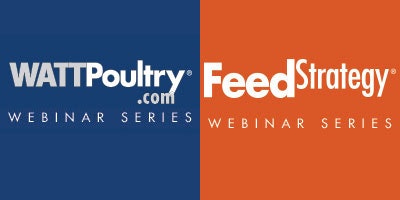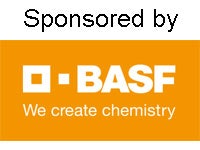
Environmental impacts of livestock production are at the forefront of the industry topics for 2021. Global challenges have accelerated the demands of policymakers, investors, retailers, and consumers to tackle and reduce the footprint of livestock. During the webinar, feed industry and academic experts will discuss the potential of feed formulation to tackle this challenge through an opportunity lens that goes beyond least-cost design and innovation. This dialogue will feature Greg Thoma, Director of Research and Professor of Chemical Engineering at the University of Arkansas, who will highlight the science behind environmental footprinting in the animal protein value chain and recent research and policy developments. Johanna Daka, Development manager 
WHAT YOU’LL LEARN:
- Understand livestock/animal protein value chain sustainability pressures and opportunities.
- Discover how changes in feed formulation affect the environmental impact and what you can do to reduce your footprint.
- Explore how a new digital tool integrated with feed formulation software reduces the complexity and cost of footprinting without compromising profitability.
This webinar is sponsored by BASF and presented by WATTPoultry, Feed Strategy, and WATT Global Media.
SPEAKERS:

Tom Battagliese is currently Senior Manager, Global Sustainability Metrics for BASF’s Nutrition & Health business, collaborating with the business and stakeholders to measure and improve product and enterprise sustainability along the entire value chain. He has worked for more than 20 years within the industry, consulting, and academia to help lead organizations across sectors to successfully identify, measure, and develop solutions and strategies for continuous improvement to sustainability and environmental opportunities. Since 2012, Tom has been helping to create a more sustainable feed and animal protein value chains, including leading the first comprehensive U.S. beef industry value chain life cycle study with the National Cattlemen’s Beef Association and US Department of Agriculture, as well as working across protein sectors on sustainability metrics and life cycle business opportunities. Tom is currently the Chair of the Technical Management Committee & Board Member for the Global Feed LCA Institute (GFLI), Co-Chair of the Broiler Framework Committee for the US Roundtable for Sustainable Poultry & Eggs, and a member of the US Dairy Sustainability Alliance and The Sustainability Consortium Ag Metrics Task Force. Tom holds a Master’s Degree in Energy and Environmental Policy with a concentration in Sustainable Development from the University of Delaware, an MBA from Widener University, and a dual degree B.S. in Environmental Chemistry and German from Rutgers University.

Greg Thoma, Ph.D., Director of Research and Professor of Chemical Engineering at the University of Arkansas
Greg Thoma, Ph.D. is the Bates Teaching Professor of Chemical Engineering at the University of Arkansas and served as inaugural Director for Research of The Sustainability Consortium. He has led numerous food and agriculture life cycle assessment projects: milk, cheese, milk delivery systems, yogurt, swine, poultry, corn, and beef. He serves on the steering committee for the Swiss National Research Program, “Healthy Nutrition and Sustainable Food Production.” He is the North American subject editor for Agriculture for the International Journal of Lifecycle Assessment and has served on the scientific/technical/organizational committee for numerous international LCA conferences. He has been active with the UN Food and Agriculture Organization’s Livestock Environmental Assessment and Performance (LEAP) Partnership since its inception acting as the Technical Advisory Group Lead/Co-lead for the development of the poultry, swine, and large ruminants’ guidelines. He is currently serving on the nutrient cycling and biodiversity technical advisory groups.

Johanna Daka, Development manager, Hankkija Oy
Johanna Daka received her M.Sc.Agr. Animal Science, University of Helsinki, Finland. Over 30 years of experience in the development of feeding concepts and primary production of different animal categories. Advising and training producers in feeding and optimizing feed formulas for home mixing. International experience of development cooperation.